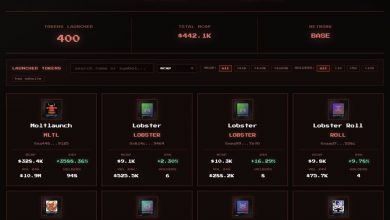
Generative AI and the associated apps, tools and platforms, are heralded by many as the most efficient way for busy executives to crunch data, draw insights, elevate their brand and support pivotal career moments such as preparing for interview or creating a new profile
But what is real, what is hype, and what are the risks around trusting generative models to match you with the right opportunity – and to analyse and represent your unique set of talents, experience, attributes and requirements to the wider world, especially potential employers?
There is no doubt that GenAI can and should be used to support any aspect of professional development and career transitions. It is an invaluable resource, able to digest vast amounts of data and present it in a succinct, clear, comprehensible format in seconds. It can look for patterns, analyse current trends, forecast future ones and create highly personalised content.
However the technologies do come with limitations and challenges, so Rialto consultants use them alongside traditional coaching techniques and optimisation of networks, knowledge and experience to support clients looking for new leadership roles.
The Balanced Approach: Integrating AI and Human Coaching
The most successful executive transitions leverage both AI tools and human coaching in complementary ways. This integrated approach ensures executives benefit from technological efficiency while maintaining the authentic human connection essential for navigating complex executive career transitions. The future belongs to leaders who can skilfully combine these resources, using AI to enhance, rather than replace, the human judgment that ultimately drives successful executive journeys.
The time factor involved in mastering new technologies at such crucial and stressful junctures in life can also be an obstacle to their effective use. Hopefully, executives will only be seeking to transition once every five to nine years. Who wants to spend weeks training on specific AI tools for each stage of the journey, when this may be the only time they use those apps in their life? With the current pace of change, the tools will be obsolete or at least unrecognisable by the time the same individuals are back out on the market, all going well.
Luckily, there are experts on hand who know exactly which tools to use and how to use them. No need to reinvent the wheel, far better to just sit at it and drive, with an experienced human co-pilot who can navigate and smooth the way.
Where AI needs the human touch:
While jobseeking apps such as Indeed are useful for entry level jobs, and tools like ResumAI, Rezi, and Teal employ algorithms to analyse executive CVs against industry standards and specific job descriptions, the increasingly exacting, multi-layered processes and stages of executive hiring in this ultra-competitive market demand laser-sharp, sophisticated strategies which must be refined and adapted constantly.
This takes a human touch. emotional intelligence, instinct and delicate nuance that AI simply doesn’t have, at least not yet.
Contextual Understanding AI tools frequently struggle with nuanced industry contexts and organisational cultures. They may fail to recognise that what works in one sector could be inappropriate in another or vice versa. For example, they cannot differentiate tone and language a candidate might use if moving from a creative industry to a financial institution or pick up on the requirements of a generic position in a niche organisation. They may also struggle with cultural sensitivities. Emotional intelligence, instinct and human experience are essential in decision-making.
Authenticity Gaps This is a crucial one. The standardised language generated by AI tools will always undermine the authentic voice that distinguishes truly compelling executive profiles. Technology might be able to magic up what it perceives to be the perfect candidate for a position and help an applicant get through the first sift, especially if the organisation is using AI tools itself to create a longlist from the hundreds of initial inquiries. However recruiters increasingly report detecting AI-generated content that lacks personal perspective and genuine insight. An AI generator cannot delve into a person’s memory and recall the unique experiences and successes relevant to the requirements of the role that make any individual stand out from the pack. Human coaches excel at building trust, drawing out this buried treasure, understanding individual needs and ensuring that the candidate on paper aligns with the candidate in person. They might use AI with a client to help structure this process, but it takes emotional intelligence and insight to interact in a productive and meaningful way to assess and truly represent an individual’s value proposition.
Strategic Limitations While AI excels at tactical optimisation, it falls short in strategic career guidance. These tools cannot effectively evaluate whether a particular role aligns with an executive’s holistic long-term aspirations, values and life priorities. AI cannot read a person’s character or recognise when they are genuinely lit up over a subject. A mentor or coach works hard to get to ‘really’ know their client and build trust to be able to hold up the mirror and guide them towards a career transition that will ultimately provide fulfilment and ensure continuous professional development. They can think several moves ahead like a chess pro, compared to the limited, chance-based algorithms of AI. AI may suggest openings in the market and the generic skills being sought but good coaches can narrow down opportunities in the executive market that align with their client’s complex matrix of talents and requirements and support them to understand any gaps in their personal skillsets or experience. Experienced coaches bring extensive networks and relationship capital that open doors to opportunities never posted publicly. These connections frequently lead to the most fitting and rewarding executive placements.
Relationship Dynamics Executive hiring remains fundamentally relationship-driven, with cultural fit and leadership chemistry playing decisive roles. AI tools cannot replicate the human intuition that recognises when a leader will thrive in a particular organisation’s culture. Candidates should seek a more rounded view of the company’s culture, style and hierarchy. Nothing can replace the unedited information passed from human to human with nuance and personal opinions. Executives seeking new opportunities will feel more confident and comforted being able to access insider knowledge and trust their instincts.
The Personalisation Paradox While AI promises personalisation, its reliance on historical data means recommendations often gravitate toward conventional career paths rather than innovative trajectories. Executives seeking transformative roles may find AI guidance constraining rather than liberating. There is no “thinking outside of the box” or ability to assess challenges against opportunities and the individual’s appetite for risk vs need for stability depending on the stage of their career or family responsibilities, for example.
Algorithm Bias AI systems reflect the data they’re trained on, potentially perpetuating existing biases in executive selection. Women and minority executives should be particularly attentive to how AI tools might unintentionally minimise leadership qualities that don’t conform to traditional models. A human coach or mentor can navigate these sensitive issues and help identify unique attributes and how to optimise them.
The Technology Learning Curve Despite their promise, many executive-focused AI tools require significant time investment to use effectively. The learning curve can be steep, particularly for leaders less comfortable with emerging technologies. Executives may find it difficult to navigate the ever-evolving myriad of available options and integrate them into their workflows effectively. Where time is an individual’s most valuable resource, AI can certainly be a frustrating adversary rather than an invested and trusted advisor.
Adaptive Strategy and Reflective Thinking Executive coaches continuously refine their approach based on subtle cues, market shifts, and emerging opportunities. This adaptability enables the development of dynamic career strategies that AI’s more rigid frameworks cannot replicate. As candidates progress, they gain deeper self-awareness, often adjusting their ambitions or realising they may find greater success and fulfilment on an entirely different path. Having a human mentor to listen, respond, and reflect helps clarify thinking, challenge assumptions, and inspire innovative career approaches. These conversations often lead to breakthrough insights that algorithmic interactions simply cannot generate. The best coaches provide candid feedback about executive blind spots, communication patterns, and leadership presence that AI tools cannot detect. This honest perspective is essential for authentic development and successful transitions.
Perhaps the most crucial element missing from AI, however, is compassion. Try telling Microsoft CoPilot that you didn’t get the job you desperately wanted after six gruelling rounds of interviews. It will generate a handful of practical suggestions in plain English—but what you truly need is a human being who knows you, acknowledges your effort, empathises with the disappointment, and guides you forward with encouragement and insight.
GenAI vs Executive Career Coaching
AI tools and platforms are a valuable addition to the multi-dimensional, structured approach executives should take when navigating executive career transitions. They offer efficiency, data-driven insights, and practical support—but they remain just one piece of the puzzle.
While AI continues to evolve, it still lacks the instinct, emotional intelligence, strategic foresight, and human connection that define truly effective executive career transition support. A great executive coach does more than provide insights, they challenge, mentor, and inspire. They recognise the nuances of each individual’s journey, helping leaders uncover opportunities they might never have considered and navigate setbacks with resilience.
A time may come when AI can fully replicate these qualities, seamlessly integrating empathy, strategic thinking, and creativity into its responses. But for now, the ability to truly understand, adapt, and empower remains uniquely human.



